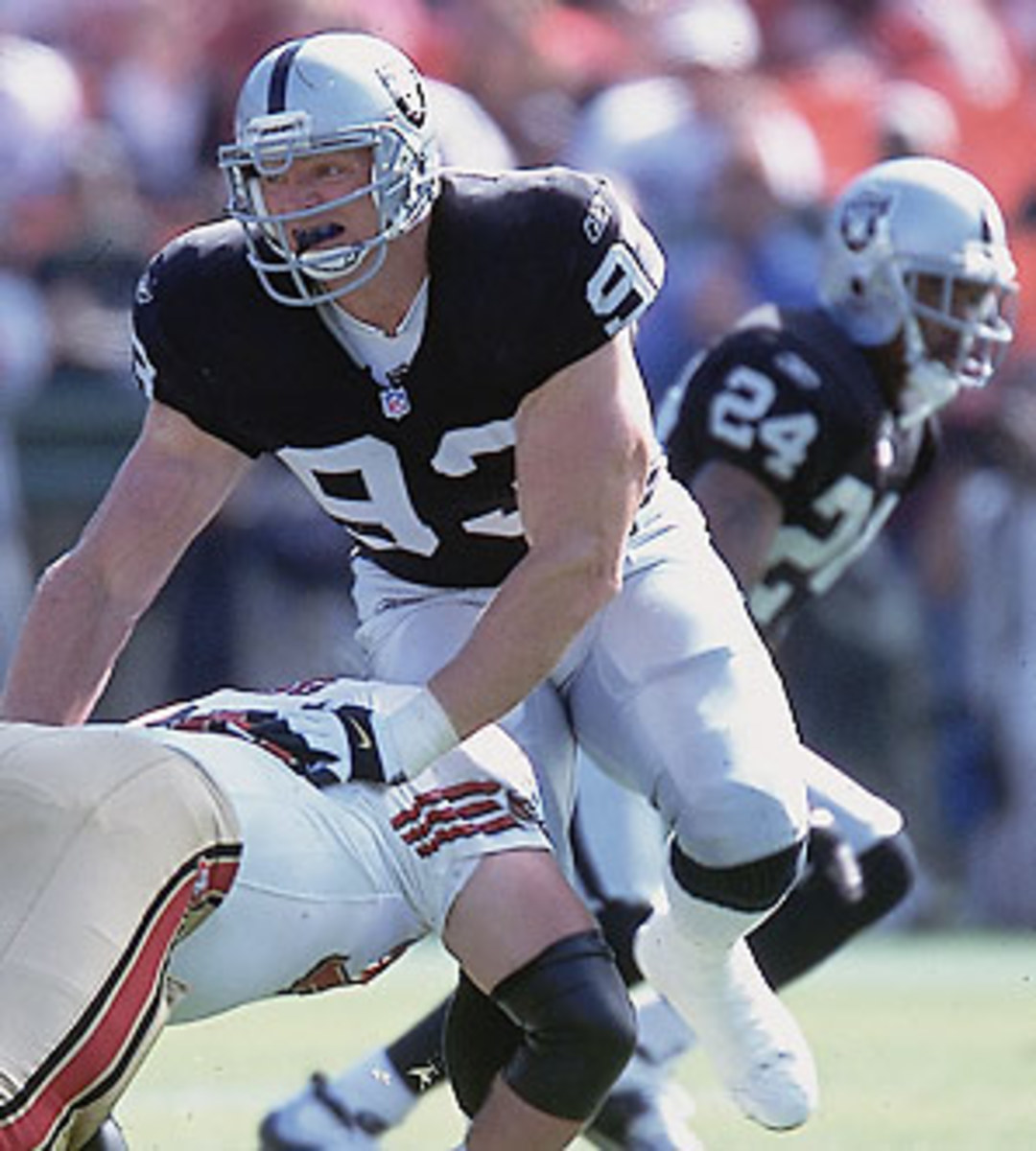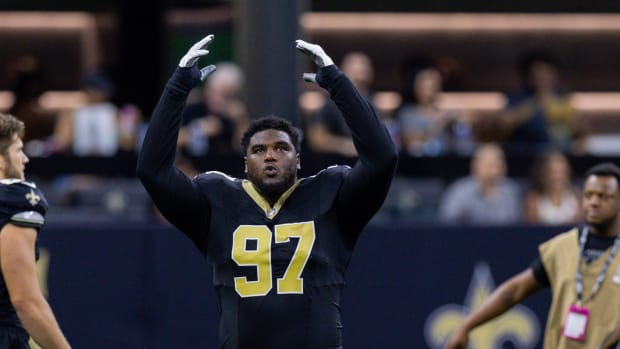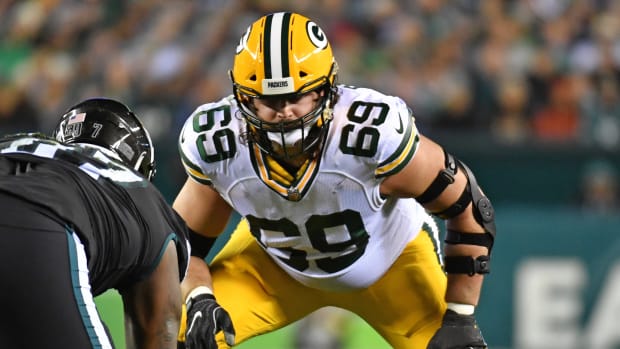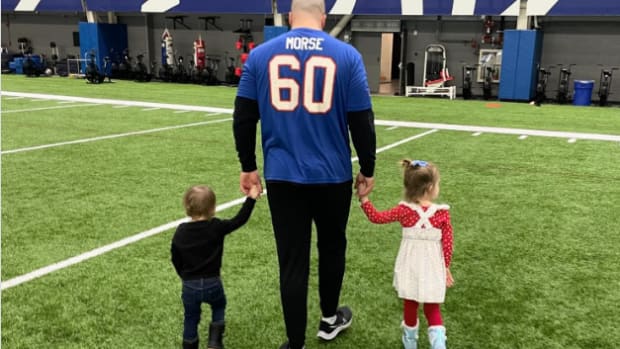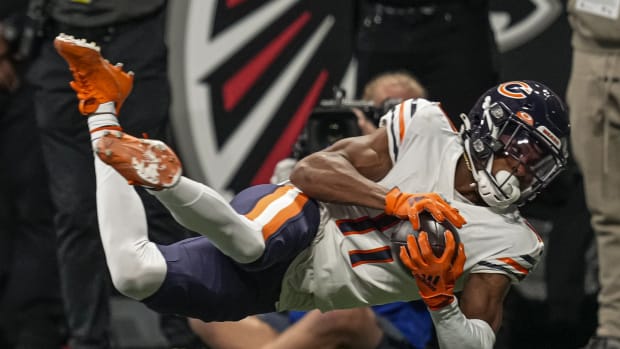Before next NFLPA boss deals with bargaining, one issue beckons
This weekend, the National Football League Players Association team reps will meet in Hawaii to hear each of four candidates explain why he's the right man to head the NFLPA going forward. But few NFL fans, serious or casual, have a clue about what could be the biggest union leader election in professional sports history.
I know. In these tough economic times, the last thing you want to hear about is which guy will eventually sit down with the NFL owners as a bunch of older rich guys haggle with a couple of younger, more athletic guys over how to divvy up the billions of dollars flowing into their coffers. I know you don't care, but you should. The passion and loyalty of the fans have made this league what it is today. Plus, whatever happens will affect your team.
My purpose isn't to dissect or endorse a particular candidate; I'm hopeful Trace Armstrong, David Cornwell, DeMaurice Smith and Troy Vincent are qualified to do the job. My purpose is to draw attention to how teams elect player reps, a problem few people realize exists, but that the next NFLPA boss will need to fix.
Before I get to that, let me say that no matter who gets elected for the head job, it's absolutely critical that current and former players alike unite behind our new leader. There's no time for divisiveness, especially with the impending CBA negotiations on the horizon. The NFLPA needs one voice and one voice only. The constant media leaks, back-room dealings and public in-fighting are way too similar to the interaction among teenage girls for my liking. I don't really care about who said what to whom behind the scenes, just like I didn't care that Kristy was going to the prom with Danny instead of Frank. Those associated with the situation need to treat the NFLPA for what it is, a serious professional organization, not a center for drama.
While I don't think it's essential, I'd strongly prefer the new executive director be a former player. It would be extremely helpful for the membership to understand that the face of the organization is one of them, a guy who has been there and done that and truly understands the sacrifices and issues players face. Though I'm sure Cornwell and Smith would be a tremendous advocate for the players, it is hard for me to imagine them having the same passion as someone who has lived it. I can tell my friends what the NFL is like until I am blue in the face, but they will never really understand it.
There is no doubt it would be beneficial if the next executive director had a law degree or an extensive background in labor negotiations, but it shouldn't be a prerequisite. People with those skills need to be part of the process on the union's behalf, but the guy in charge doesn't necessarily have to possess those traits. This isn't a one-man show. Besides, Armstrong and Vincent were NFLPA presidents as players and have a solid amount of experience as a result.
As a recently retired player, what matters to me is that certain steps are taken to improve the process that even leads to this point, namely how players are elected in the first place. Every team has a player rep and an alternate, with some teams having an additional alternate. As you might have guessed, I was one of the few players who cared enough to want to be deeply involved in our union. And like most players who feel that way but are never elected as a rep, I grew increasingly frustrated with the process.
Player elections can be more or less a popularity contest. There is no opportunity to discuss your beliefs or feelings or to explain what you'd try to accomplish if elected. Peers nominate candidates who, if they accept, get placed on the ballot (so to speak). There isn't a platform, but there is a strong feeling that some guys are interested in becoming a rep solely because of the all-expense paid vacation to Hawaii that they and their families receive to attend the NFLPA meetings.
That always used to infuriate me. It should not be about a trip to Hawaii. This is our profession. Our life. And somebody is going to run for the position simply for a free getaway? Though I have since been told by some NFLPA contacts that there is some inherent logic behind the move to Hawaii that dates back to when the owners held their meetings there, I still think it is too much of an expense and too enticing of a locale. The ideal site should be non-descript and centrally located. How about Wichita, Kansas? Then the guys who truly care about the union would serve as reps, plain and simple.
I was nominated as a candidate one year in Buffalo but was not elected. Two higher profile players got the nod without there being any dialogue as to why anyone was the right person for the job. My platform was pretty simple, especially as it related to my competition. If I had been given the opportunity to present my case, it would have gone something like this:
"Those other guys running are already rich. I 'm not. I make a little bit more than the minimum and desperately want to go to these meetings to fight for every last penny for all of us. Those guys are much better players than I am, but I am much better suited for this role. I care about this deeply. We need increased retirement benefits. We need a better health care solution. With all of our pre-existing conditions, it won't be easy for us to get health insurance after we are done playing. I know you don't care that much about retirement benefits now, but you should. And you will at some point."
But it wasn't meant to be. Instead, a guy who didn't even contribute to his 401k -- which features an almost unprecedented 200 percent match from the NFL -- went to Hawaii to represent the Bills. So basically, a guy who turned down thousands of free dollars for no reason was sent off to fight for our benefits moving forward.
This might sound like sour grapes, but it isn't. Several players told me they had voted for me, and that meant a lot. But it would mean a lot more if whoever gets elected as the next executive director takes immediate steps to correct some of the organization's structural issues. Those need to be addressed before he moves to the bargaining table for what will surely be one of the most contentious CBA negotiations in recent memory.
































